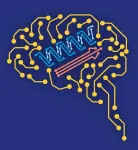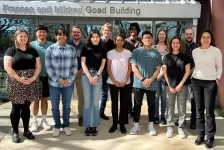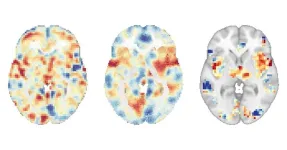(Press-News.org) Using hypertonic saline nasal drops can reduce the length of the common cold in children by two days, according to a study that will be presented at the European Respiratory Society (ERS) Congress in Vienna, Austria [1]. They can also reduce the onward transmission of colds to family members.
The results of the ELVIS-Kids randomised controlled trial were presented by Professor Steve Cunningham from Child Life and Health, University of Edinburgh, UK.
He said: “Children have up to 10 to 12 upper respiratory tract infections, what we refer to as colds, per year, which have a big impact on them and their families. There are medicines to improve symptoms, such as paracetamol and ibuprofen, but no treatments that can make a cold get better quicker.”
ELVIS-Kids Chief Investigator Dr Sandeep Ramalingam, consultant virologist, NHS Lothian, Edinburgh, UK, had noted that salt-water solutions are often used by people in South Asia, as nasal irrigation and gargling, to treat a cold and wanted to explore if this clinical benefit could be replicated in a large study.
The research team recruited 407 children aged up to six years to a study where they were given either hypertonic saline ~2.6% (salt-water) nasal drops or usual care when they developed a cold. Overall, 301 children developed a cold; for 150 of these, their parents were given sea salt and taught to make and apply salt-water nose drops to the children’s noses (three drops per nostril, a minimum of four times per day, until well) and 151 children had usual cold care.
Professor Cunningham explains: “We found that children using salt-water nose drops had cold symptoms for an average of six days where those with usual care had symptoms for eight days. The children receiving salt water nose drops also needed fewer medicines during their illness.
“Salt is made up of sodium and chloride. Chloride is used by the cells lining the nose and windpipes to produce hypochlorous acid within cells, which they use to defend against virus infection. By giving extra chloride to the lining cells this helps the cells produce more hypochlorous acid, which helps suppress viral replication, reducing the length of the virus infection, and therefore the duration of symptoms.”
When children got salt-water nose drops, fewer households reported family members catching a cold (46% vs 61% for usual care). Eighty-two per cent of parents said the nose drops helped the child get better quickly and 81% said they would use nose drops in the future.
Professor Cunningham added: “Reducing the duration of colds in children means that fewer people in their house also get a cold, with clear implications for how quickly a household feels better and can return to their usual activities like school and work etc.
“Our study also showed that parents can safely make and administer nose drops to their children and therefore have some control over the common cold affecting their children.”
Professor Alexander Möeller is Head of the ERS Paediatric Assembly and Head of the Department for Respiratory Medicine at the University Children’s Hospital Zurich, Switzerland, and was not involved in the research. He said: “This is an important study that is the first of its kind to investigate the impact of salty nose drops in children with colds. Although most colds usually don’t turn into anything serious, we all know how miserable they can be, especially for young children and their families.
“This extremely cheap and simple intervention has the potential to be applied globally; providing parents with a safe and effective way to limit the impact of colds in their children and family would represent a significant reduction in health and economic burden of this most common condition.”
The team hope to further investigate the effect of saltwater nose drops on wheeze during colds, after initial results from this study showed that children who received the drops had significantly fewer episodes of wheeze (5% vs 19%).
(ends)
END
Saline nasal drops reduce the duration of the common cold in young children by two days
2024-09-06
ELSE PRESS RELEASES FROM THIS DATE:
New RSV vaccine for older adults can result in individual and societal cost savings, benefits
2024-09-05
Vaccination against respiratory syncytial virus for adults over 60 is likely cost-effective by preventing illness, hospitalizations, lost quality of life and deaths, according to new research.
The study conducted by researchers at the University of Michigan and the U.S. Centers for Disease Control and Prevention and published in the journal Vaccine, evaluated newly approved RSV vaccines: Arexvy, manufactured by GSK, and Abrysvo, manufactured by Pfizer. The study did not include a third approved vaccine, Moderna's mRESVIA.
The vaccines are now available to adults 60 and older. The CDC recommends a single ...
Research news from the Ecological Society of America
2024-09-05
The Ecological Society of America (ESA) presents a roundup of seven research articles recently published across its esteemed journals. Widely recognized for fostering innovation and advancing ecological knowledge, ESA’s journals consistently feature illuminating and impactful studies. This compilation of papers explores the impact of rising temperatures on pathogens, dynamics of predatory seabirds and their penguin prey in Antarctica, factors determining the speed of coral reef recovery from disturbance and more.
From Ecology:
Some pathogens can’t ...
AI unlocks new path to personalized cancer treatments
2024-09-05
Researchers at Auburn University, in collaboration with scientists from the University of Basel and ETH Zurich, have made a groundbreaking advance in the fight against cancer. The team, led by Dr. Rafael Bernardi, Associate Professor of Biophysics in the Department of Physics, has developed a novel approach integrating artificial intelligence (AI) with molecular dynamics simulations and network analysis to enhance the prediction of binding sites on the PD-L1 protein. This breakthrough promises to accelerate the development ...
ResearchGate and Mary Ann Liebert, Inc. announce journal home partnership for open access journals
2024-09-05
ResearchGate, the professional network for researchers, and Mary Ann Liebert, Inc., a global media company dedicated to creating, curating, and delivering impactful peer-reviewed research and authoritative content services, are pleased to announce a new partnership through ResearchGate’s innovative Journal Home offering.
The partnership covers five Mary Ann Liebert, Inc. open access journals spanning the health and medical sciences. All backfile content and all new articles published with ...
Center for BrainHealth investigates the relationship between cannabis use, sleep and memory
2024-09-05
Dallas, September 5, 2024 – The growing legal use of recreational and medical cannabis has generated an increased concern for potential side effects from long-term use, particularly regarding problems with memory and sleep. Until now, the effect of cannabis use on sleep and on memory have only been studied separately. Research led by Francesca Filbey, PhD, from the Laboratory of Neuroimaging of Reward Dynamics at The University of Texas at Dallas’ Center for BrainHealth®, in collaboration with a team from the University of Amsterdam, aimed to fill this gap by testing how sleep impacts memory among cannabis users.
The study, “The ...
K-State researchers determine molecular interactions in plants
2024-09-05
Plant scientists have long known that phosphorus is a crucial component in plant growth. A major discovery by a K-State biologist and her lab is leading to a better understanding of how plants detect and use that resource — potentially leading to more efficient production of crops for food, fiber and fuel.
A team of researchers led by Kathrin Schrick, associate professor of biology, recently published this research in New Phytologist, a high-impact journal in the plant sciences.
Schrick's lab focused on a specific transcription factor that regulates gene expression during development. They discovered a new kind of molecular interaction between the ...
Study estimates home blood pressure devices don’t fit properly for more than 17 million US adults
2024-09-05
Over-the-counter blood pressure measuring devices offer a simple, affordable way for people to track hypertension at home, but the standard arm-size ranges for these devices won’t appropriately fit millions of U.S. consumers, according to a new study from researchers at the Johns Hopkins Bloomberg School of Public Health.
The researchers compared standard arm cuff size ranges for popular retail automatic blood pressure measuring devices to arm circumference data from U.S. government-sponsored national ...
Brain scans reveal that mindfulness meditation for pain is not a placebo
2024-09-05
Pain is a complex, multifaceted experience shaped by various factors beyond physical sensation, such as a person’s mindset and their expectations of pain. The placebo effect, the tendency for a person’s symptoms to improve in response to inactive treatment, is a well-known example of how expectations can significantly alter a person’s experience. Mindfulness meditation, which has been used for pain management in various cultures for centuries, has long been thought to work by activating the placebo response. However, scientists have now ...
Cancer research in space for life on earth
2024-09-05
WINSTON-SALEM, N.C. – September 5, 2024 — The Wake Forest Institute for Regenerative Medicine (WFIRM) is honored to announce its selection for a pioneering cancer research project that will take place aboard the International Space Station (ISS). The project, one of only five chosen through a competitive solicitation by the ISS National Lab in partnership with NASA, aims to explore the effects of microgravity on cancer development and treatment.
The project, led by Dr. Shay Soker, focuses on the use of organoids—miniature, simplified versions of organs grown in the lab from cells recovered from colorectal cancer patients. ...
Research spotlight: Radiology test can be used to diagnose immune checkpoint inhibitor-associated acute kidney injury
2024-09-05
How would you summarize your study for a lay audience?
Immune checkpoint inhibitors (ICIs) are a class of immunotherapy that have revolutionized the treatment of cancer. However, they can cause a wide variety of autoimmune toxicities, including immune checkpoint inhibitor-associated acute kidney injury (ICI-AKI). Differentiating ICI-AKI from acute kidney injury (AKI) due to alternative causes, which are common in cancer patients, is challenging without a kidney biopsy due to the risk of bleeding for some patients.
In this study, we ...



